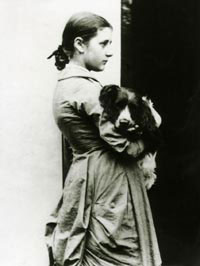
Following Beatrix as she transitions from a young woman confined to the expectations of Victorian society into a strong and capable farmer really altered my idea of her as an individual. I've always been inspired by her, but her strength in the face of hardships--like the death of her beloved fiance Norman, her strained relationship with her mother, and her frequent bouts of illness--add a level of depth to her character that I hadn't entirely seen before. Beatrix also had a level of pragmatism that people may not be aware of given the fantastical elements of her little children's stories. She was truly a naturalist at heart more than anything else. She loved nature and being in nature, and her art was as scientific as it was fantastical. All her characters and settings were drawn from observation and captured the realities of proportions and visuals, and she translated country life into her stories with her rich illustrations and prose. Her perspective on life is also refreshing. She truly embraced the wisdom and experience that come with age, and Lear included a quote of hers in A Life in Nature that I find particularly inspiring:
"Do you not feel it is rather pleasing to be so much wiser than quantities of young idiots?"
I also found the end of A Life in Nature to be incredibly meaningful in the way it ties Beatrix's naturalist ideas to her stories and her continued impact on the world. Lear eloquently connects Beatrix's incorporation of the natural world into her stories to the progress of the environmentalist movement and shows how books like Peter Rabbit can inspire people to see the beauty in a world that has largely disappeared due to industry and modernization. I highly recommend that anyone who was ever influenced by Jemima Puddleduck or Mrs. Tittlemouse to give Lear's biography of Beatrix Potter a looking at. It's a very thick book, yes, but the story it shares is a compelling one, and the 100-odd pages of references in the back are fun for us literary-types, too.
<3 Frances

No comments:
Post a Comment